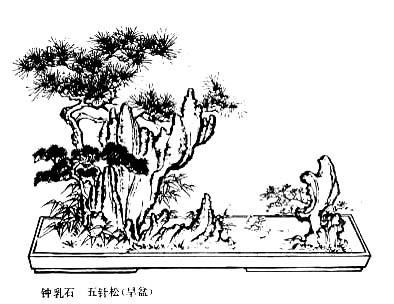Shi Jing 
 – The Book of Odes
– The Book of Odes
The oldest collection of Chinese poetry, more than three hundred songs, odes and hymns. Tr. Legge (en) and Granet (fr, incomplete).
Shijing I. 3. (31)
Hear the roll of our drums !
See how we leap about, using our weapons !
Those do the fieldwork in the State, or fortify Cao,
While we alone march to the south.
We followed Sun Zizhong,
Peace having been made with Chen and Song;
[But] he did not lead us back,
And our sorrowful hearts are very sad.
Here we stay, here we stop ;
Here we lose our horses ;
And we seek for them,
Among the trees of the forest.
For life or for death, however separated,
To our wives we pledged our word.
We held their hands ; –
We were to grow old together with them.
Alas for our separation !
We have no prospect of life.
Alas for our stipulation !
We cannot make it good.
Legge 31
Banging the Drum
From: Book of Ode
Period: Spring and Autumn
Dynasty: Eastern Zhou
Section: Songs of Wei State
(Collected by Confucius)
Translated by Laijon Liu (2007.08.16)
Banging the drum, dang, dang, dang,
Eager soldiers raise their arms.
They all fortify our citadel and canals,
But I follow my regiment to the south.
I serve my general Sun Zi Zhong,
To make peace for State of Chen and Song.
For our engagement that I cannot return,
So I am in worry and anxiety.
Where I shall look for shelters?
Where I will find my horse?
And how I should search?
Maybe the answer is hiding in the woods.
“Our vow is beyond death and life”,
I and you are together I always remembered.
I will hold your hand,
And together we grow old.
Too pitiful we are faraway apart,
The distance separates us to meet again!
Too miserable this takes forever,
And it does not let us fulfill our vow!
Note:
The poet may be an elite soldier of State of Wei.
He followed his general Sun Zi Zhong served near the border of State of Chen and Song (two states were in conflict), and stayed there. He was anxiously waiting for the order to return to his home there his wife was. And during the operation, he lost his horse, which was a desperate situation (horses in ancient time carried soldier supply and weapons, are life companion for soldiers in advance or retreat), he lost his horse, his supply, maybe his armor and weapons, and the road he was facing that we may lose his life so he may never go back. In all these mess, he started searching, and somehow at this hopeless moment he started to revisit his happiest moment, when he together vowed in marriage ceremony with his wife, and he was even afraid that he might never see his love again.
The end of our life, reminds us the true happy moment, experience, value... Confucius said:" At the end of man's life, his words are graceful; At the death of a bird, his song is in grievous tone.
It is unfair to put anyone in such situation: "To kill or to be killed".
The poet's questions are common for everyone in desperate time, when we cannot run away and our future is in other people's decision. When nations or states look for honour, justice, righteousness, peace... their actions and methods often fall into violence. So common's life, happiness and value are at stake, become sacrifice of their leaders' faith and belief. So the poet asked "Where I shall look for shelters? Where I will find my horse(his life companion)? How I should find?" And "Maybe the answer is hiding in the woods." He might be seek a way out, that to hide in the forest, away from society?
And His last statement for his true value is his home, his love, his fulfillment of his vow is his true duty. Hero's duty is to pursue love.
From:
http://laijonliu.blogspot.com/

The Book of Odes – Shi Jing I. 3. (31) – Chinese off/on – Français/English
Alias Shijing, Shi Jing, Book of Odes, Book of Songs, Classic of Odes, Classic of
Poetry, Livre des Odes, Canon des Poèmes.
The Book of Odes, The Analects, Great Learning, Doctrine of the Mean, Three-characters book, The Book of Changes, The Way and its Power, 300 Tang Poems, The Art of War, Thirty-Six Strategies
Welcome, help, notes, introduction, table.
Index – Contact – Top
